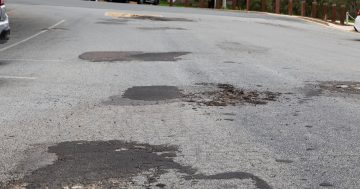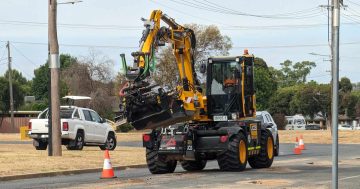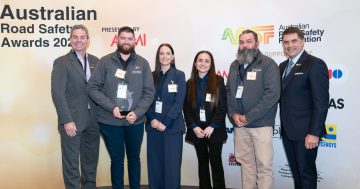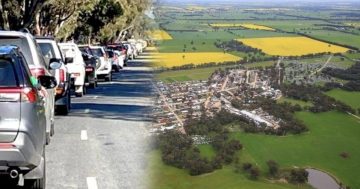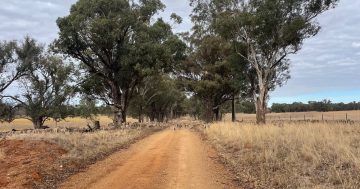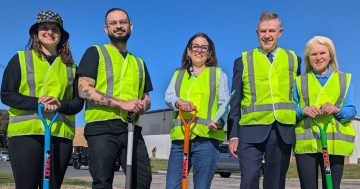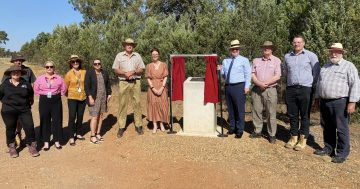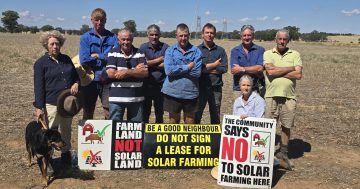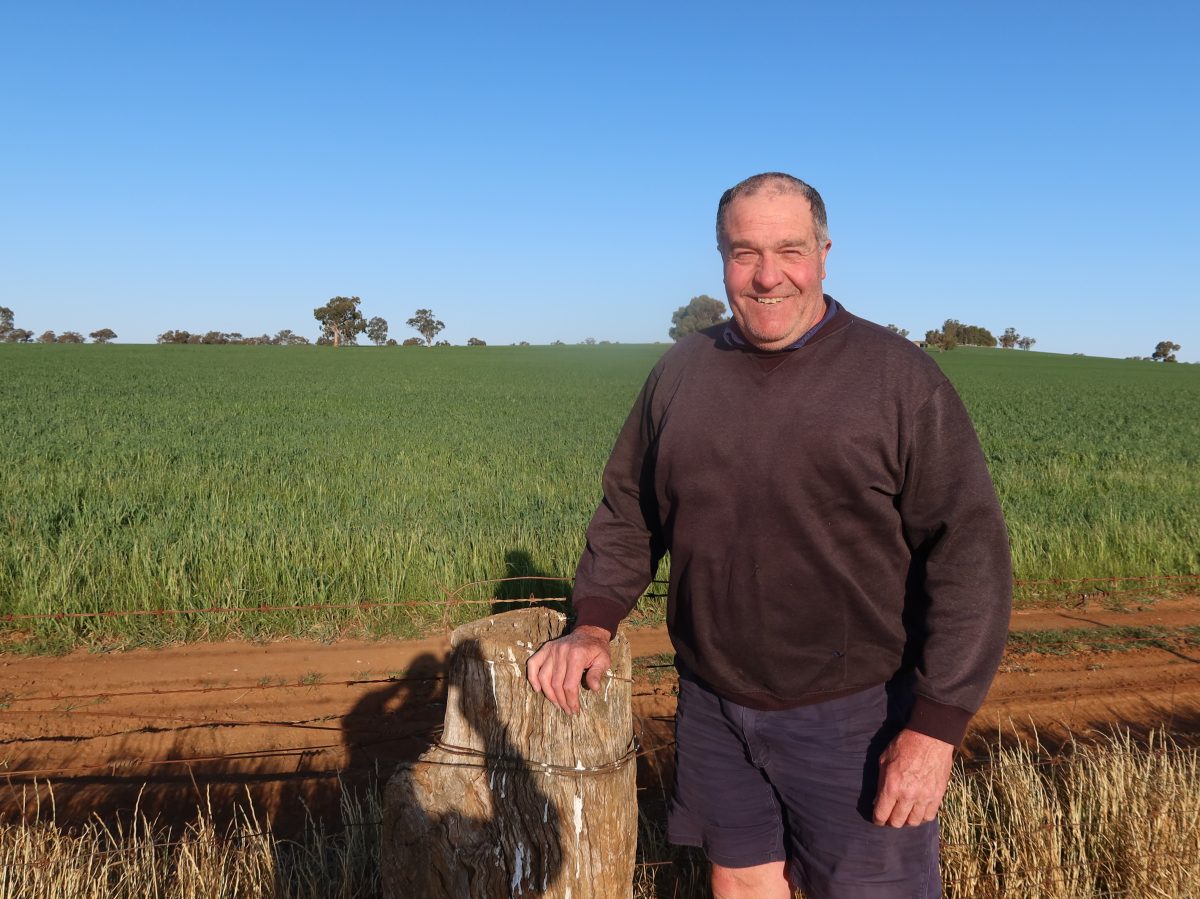
David Meiklejohn is sick of driving on the roads outside Wagga. Photo: NSW Farmers.
As governments tell motorists to take care on its roads during National Road Safety Week, a Wagga farmer has flipped the script and sent a message back to the politicians.
NSW Farmers’ Wagga Branch Chair David Meiklejohn labelled the state of the roads in rural areas a “disgrace”, saying the transport of food from farm to fork was “becoming increasingly impossible”.
In a recent Facebook video that’s gone viral, he filmed himself travelling on a pothole-strewn road just out of Wagga.
“Our vehicles have to be roadworthy, but are our roads vehicle-worthy?” he asks.
Mr Meiklejohn is a lamb and mixed cropping farmer in Downside. He also operates a freight transport business.
“You only have to drive out the farm gate and you’re faced with everything from dangerous potholes that can ruin your tyres to whole sections of road crumbled into oblivion,” he said.
“Floods have left many roads near impassable in the north, while down south, a similar neglect to repair our roads has meant we’re battling to get fodder on farm and truck livestock off – making this drought even harder than it already is.
“If you’re planning on driving anywhere in rural NSW, my message to you is simple: buckle up, and be ready for the roads to be a mess.”
A recent report by NRMA estimated $3.4 billion in funding was needed by NSW’s local councils to repair their roads to a safe condition.
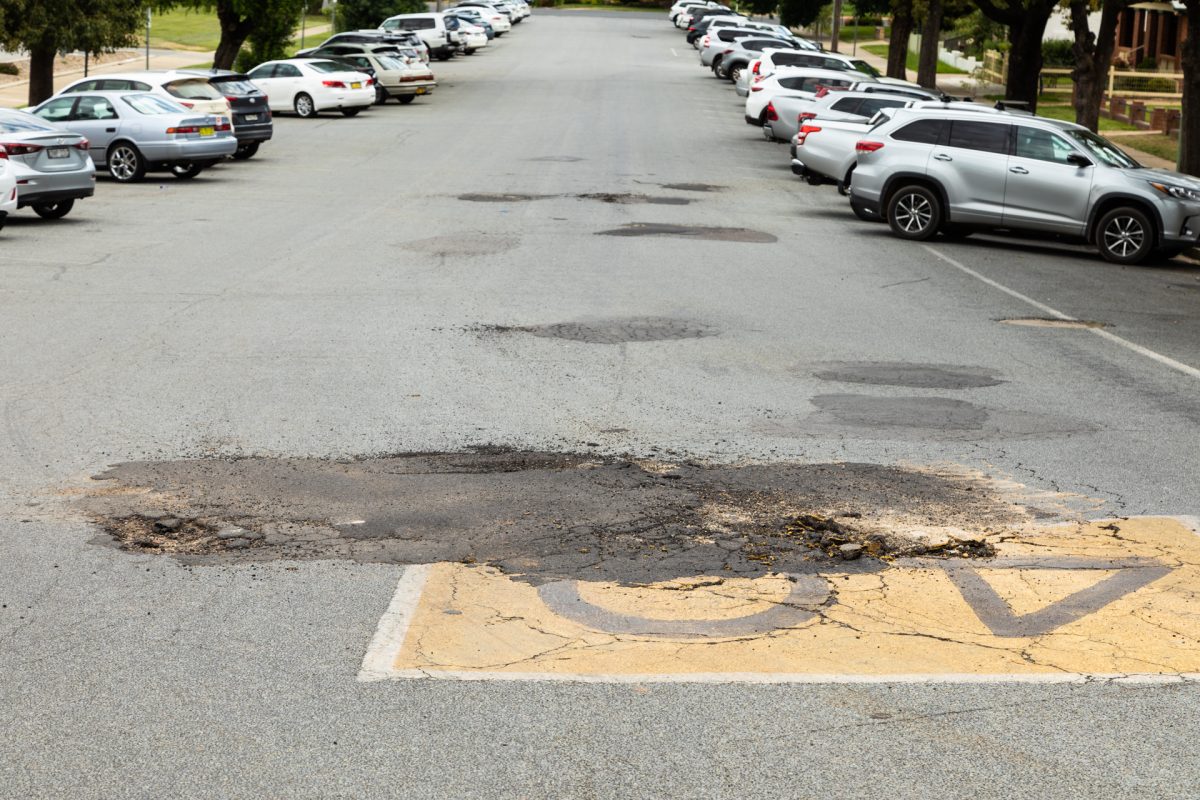
Wagga is fast becoming Australia’s pothole capital. Photo: Michelle Kroll.
At an estimated $180 million, the cost to fix Wagga’s roads is $100 million higher than any metropolitan local government area. Among regional councils, it sits only behind Clarence Valley ($390 million) and Mid-Coast ($215 million).
“[Fixing roads] are fundamentally one of the biggest challenges council faces, and it’s part of the platform that I ran on during the election last year,” Wagga councillor Lindsay Tanner said.
“One of the things I’m trying to do is to improve council’s funding towards roads. The current long-term financial plan addresses the shortfall, but what it doesn’t do is account for the increasing deterioration of the network.”
Mr Meiklejohn said an unprecedented effort would be necessary to get NSW’s rural and regional roads back on track, with all levels of government urged to immediately invest in road repairs and upgrades across the state.
“Boosting federal support for financial assistance grants to fix our roads would go a long way to getting us back on track, but we also need to see billions, not millions, in funding from our state and federal governments to shift the dial,” Mr Meiklejohn said.
“Every day we leave our roads like this is another day where our families, our friends, our truckies and our tourists are put at unnecessary risk.
“The productivity benefits that would also flow if we could just get inputs on-farm – and food and fibre off it – would be second to none.
“It’s a no-brainer: fix our roads, and you’ll keep our families safe, and food on the table for the nation.”
Mr Meiklejohn’s criticisms come during National Road Safety Week, an annual initiative of the Safer Australian Roads and Highways (SARAH) Group.
SARAH was launched by Peter Frazer OAM following the tragic loss of his daughter in a road crash.
On 15 February 2012, Sarah, then aged 23, was driving to Wagga Wagga to begin her university degree when her car broke down on the Hume Highway near Mittagong. She pulled into the emergency breakdown lane and called for assistance before another vehicle struck her and the tow truck driver, killing both.








